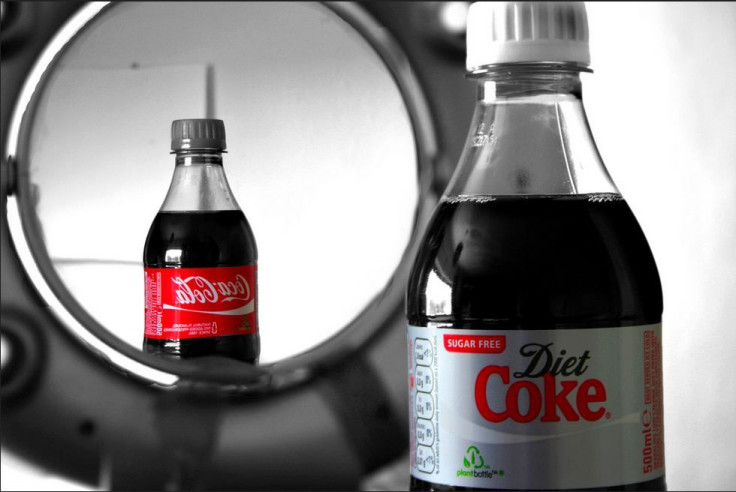Coca-Cola Spreads Lies About Aspartame And Dangers Of Artificial Sweetener

Aspartame is an artificial sweetener that gives diet soda the mimicking taste of sugar. Soda Giant Coca-Cola relies on aspartame so heavily it’s willing to defend it with hollow claims, and in some cases, just straight-up lies. Mercola collected the top inaccuracies and false statements given by Coca-Cola in order to clarify any misconceptions surrounding the sweet liquid.
Aspartame was first discovered by a scientist accidentally while trying to make an anti-ulcer drug. It’s made of methanol, aspartic acid, and phenylalanine, which can lead to depression and neurological problems. But when it enters the body it breaks down into phenylalanine, aspartic acid, and methanol, which are toxic in high dosages. Approximately 20 percent of the U.S. population, including consumers as young as 2 years old, consumes diet drinks on a regular basis, according to the Centers for Disease Control and Prevention.
The Food and Drug Administration originally banned aspartame in 1980 because three different scientists confirmed it “might induce brain tumors.” But one year later, the FDA approved the use of aspartame as a food sweetener “NutraSweet” because it claimed the original tests weren’t reliable enough to determine its safety. By 1983, the National Soft Drink Association got involved, and a final ruling permitted the use of aspartame in carbonated beverages and syrup bases.
Today, it’s one of the most common artificial sweeteners and can be found in literally thousands of different food and drink products. Out of all of the adverse food additive reactions that were reported to the FDA, over 75 percent of them were side effects of aspartame. With over 900 studies revealing the damaging effects of aspartame, the 200 studies crediting its safety seem less impressive.
It’s 200 times sweeter than sugar and sold under the brand names NutraSweet, Equal, and Sugar Twin. Some people prefer it because you need less of it due to its high sweetness levels, which also means the less you use, the less calories you consume. But that doesn’t mean it’s a weight loss magic trick. In fact, aspartame has been shown to stimulate appetite, increase carb cravings, and promote fat storage. It activates your appetite but leaves you with less calories, and in turn your body craves even more.
People who drink diet soda are more likely to be overweight or obese, according to a recent study from Israel. It’s no wonder America is experiencing an obesity epidemic with enough type 2 diabetics to keep the insulin companies in high demand.
"Artificial sweeteners were extensively introduced into our diets with the intention of reducing caloric intake and normalizing blood glucose levels without compromising the human 'sweet tooth,'" the study’s authors wrote. "Our findings suggest that [artificial sweeteners] may have directly contributed to enhancing the exact epidemic that they themselves were intended to fight."



























